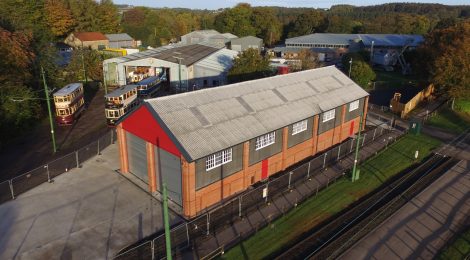
T&I News 22 2019…
Another busy couple of weeks have flown by, so here are some news items to keep abreast of work taking place within the transport department at Beamish…
Crossville 716
Below: Work on the Leyland Cub which is being restored and adapted to become our second accessible bus is making good progress, with the body framing and skinning nearing completion. The view below shows that the bus is taking shape nicely, with the first primer coats also in place. Glazing is on order (to be fitted once the body is painted) and attention is focused on completing the rear end of the vehicle and installing the wiring. The new lift will be ordered in the new year, in order to maximise the warranty period available for it.
Below: Having tried various attempts to update WordPress and look for a solution to being unable to rotate images, I’ve given up! So forbearance is requested with some of these images! This view shows the rear of the bus, with the large double doors, through which wheelchair passengers will board, clearly evident. Beneath these is a panel which will be trimmed to accommodate the powered lift (as fitted to the present accessible bus). A great deal of consideration has been given to the rear end of the bus, which was all but lost to the many years it spent as a derelict hulk in a collapsed barn. Early thoughts had been to provide a ramp, but this proved to be far too steep. The height of the rear of the bus (which originally had an emergency door in the centre of the rear panel) has also been considered, and as most users are fairly tall, the decision was taken to have the doors to the same maximum height as the saloon. Some will question this I am sure, but the work to install the doors has followed the same design principle as the rest of the Cub’s bodywork, and it should also be remembered that we purchased this vehicle as a wreck, so that it would provide a blank canvass for adaptations necessary to suit its new role as an accessible bus at Beamish.
Below: With both doors open, a spacious entry into the saloon is created.
Below: An internal view of the rear doors. The roof has been re-profiled in this area, to give a continuous height through to the top of the door frame. Originally the rear dome swept downwards in this area.
Below: Wiring of the Cub is underway at present, with the saloon light pattresses being seen here.
Bus Depot
Below: With snagging remediation underway and a handover to the museum imminent, Paul Bennett, the Remaking Beamish Construction Manager, took these drone photographs of the depot and environs, showing clearly its location in relation to the tram depot and other buildings in the Foulbridge complex.
Narrow Gauge Shunt…
Below: To maximise winter undercover storage of the narrow gauge rolling stock, a shunt was carried out last week to place items into various sheds for the winter…
The Pew coach (seen below) will be coming back to the RHEC over winter for some remedial attention to the finish on the woodwork, the original varnish on the pine not having endured particularly well once exposed to the weather. Glyder and Samson were both used during the shunt.
Below: The paving slabs stored in the cutting have now all been removed, which has tidied up access to the railway considerably (this route being used for accessing one of the water treatment plants as well).
A plan is being developed it increase public access within the area the narrow gauge railway operates, to open up views and engagement opportunities in a number of areas of the site.
Below: One of the views we hope to open up is of the top yard and water tower area. Glyder is seen with the Ffestiniog Railway coal waggon, and behind one of the tipping waggons sits inside the shed. Both of these will be returning to the FR next month.
Below: Samson raises steam ahead of its turn in the shunt. Modifications to the slide valve (to reduce its length by 1/16 of an inch) have transformed Samson, from something of a reluctant performer, to a stronger and far more controllable locomotive – this being its second steaming in ‘improved’ form.
Below: Some challenging rail-head conditions!
The Rover
Below: These images recently came to light within a batch of images taken by a local photographer. The collection includes many interesting views of life in Co Durham, with the two below being of particular interest…
After appearing on Facebook, the following information has been gathered about ‘The Rover’, which has a very relevant local history…
The engine shown is Burrell No.3471 – a 6nhp showmans road engine built in 1913 and supplied to the Newsome family to work with their gallopers in the north east. It has a Durham prefix on the registration number, with its works number forming the rest of the registration.
It was requisitioned for war work in 1914 – 15, working along with gallopers packing trucks. The photos here show that the dynamo bracket above the smokebox has been cut down (close examination shows the rough finish this has created) and the engine has been adapted for operating machinery via a belt from the flywheel. The canopy has also been shortened in the process.
In the late 1950s the engine was purchased by George Flynn of Durham City and restored back to its showmans specification – photos show it carrying his name on the offside toolbox. It was later sold to Tom Hunt, of the Griffin Foundry, Oldbury, later passing to his son, Bill Hunt. The engine was rallied from the late 1950s to the mid 1970s, before being overhauled and reappearing in the mid 1990s. It appeared at the Great Dorset Steam Fair in 2018. One for a future Beamish event perhaps…


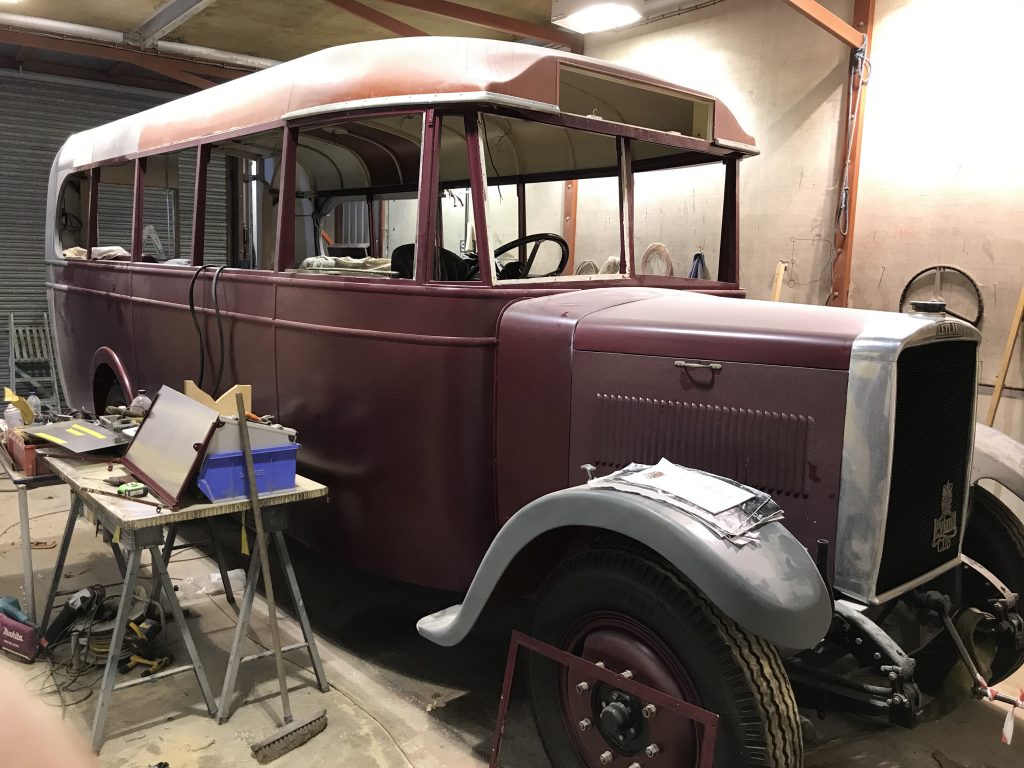
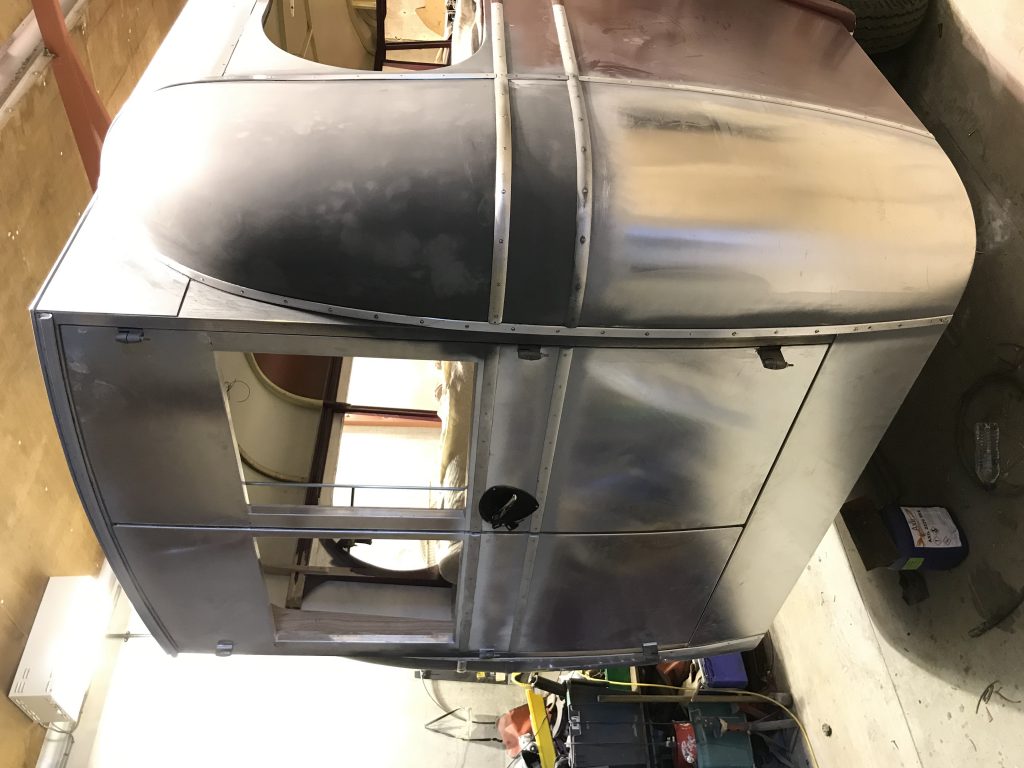
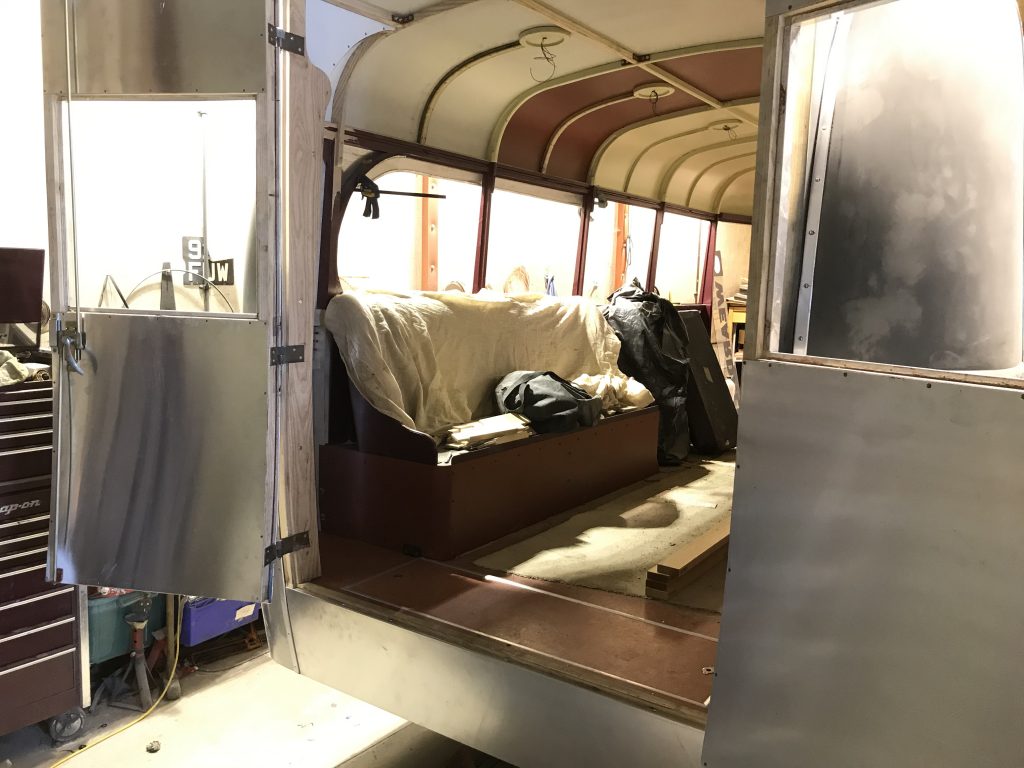
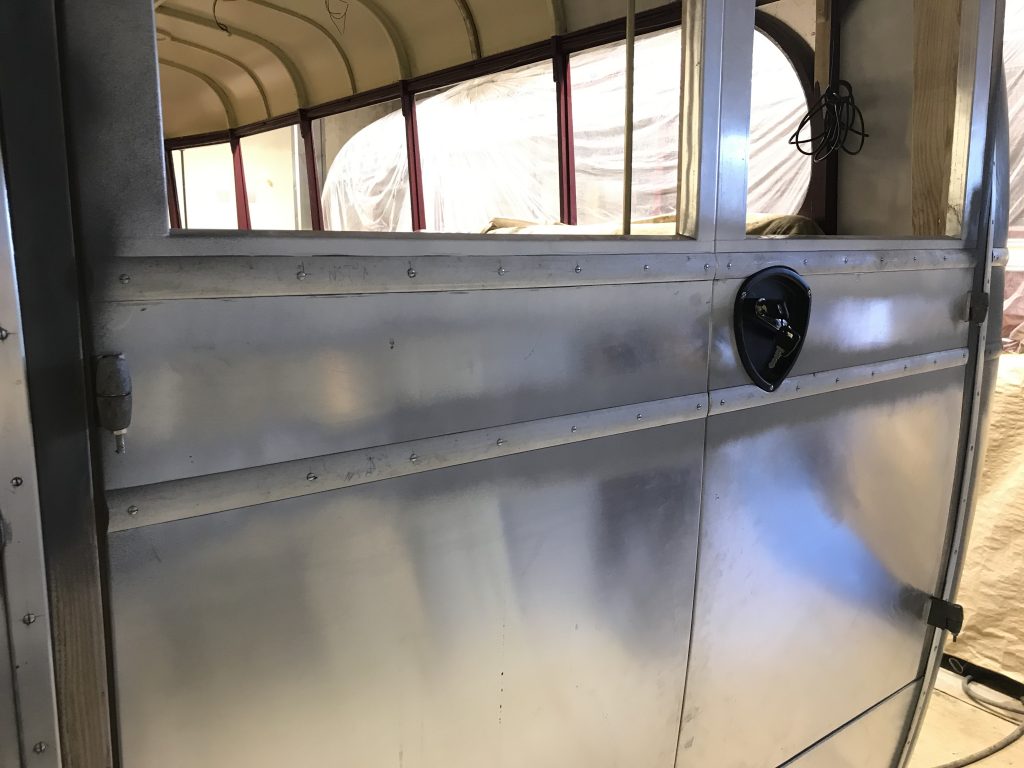
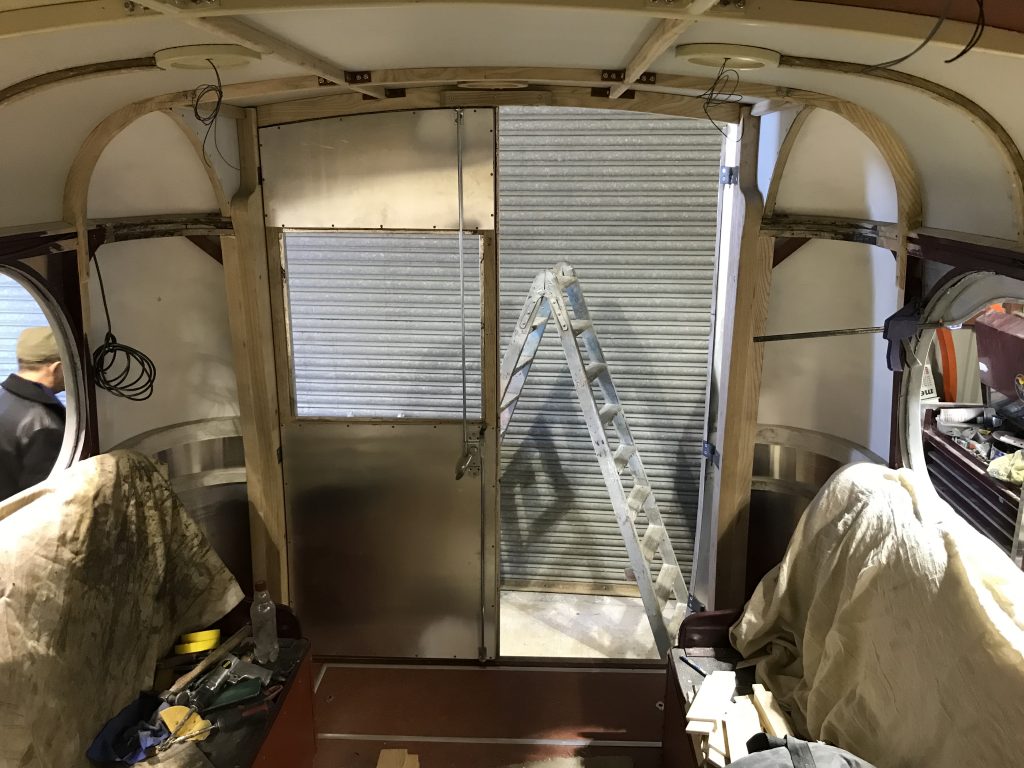
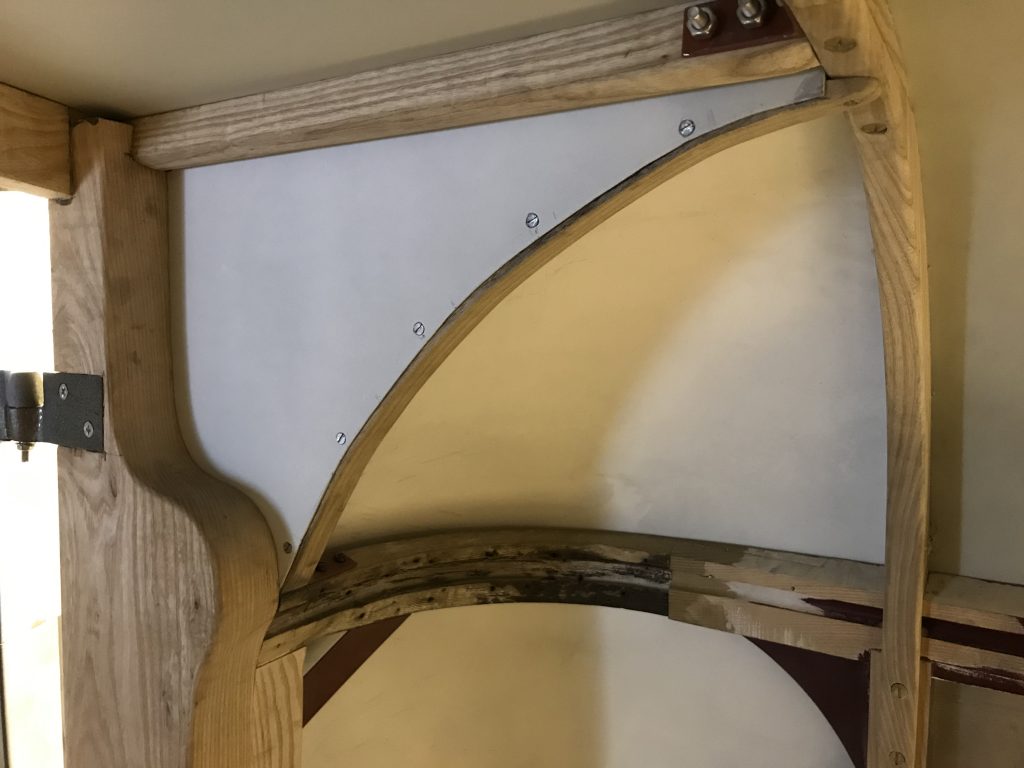
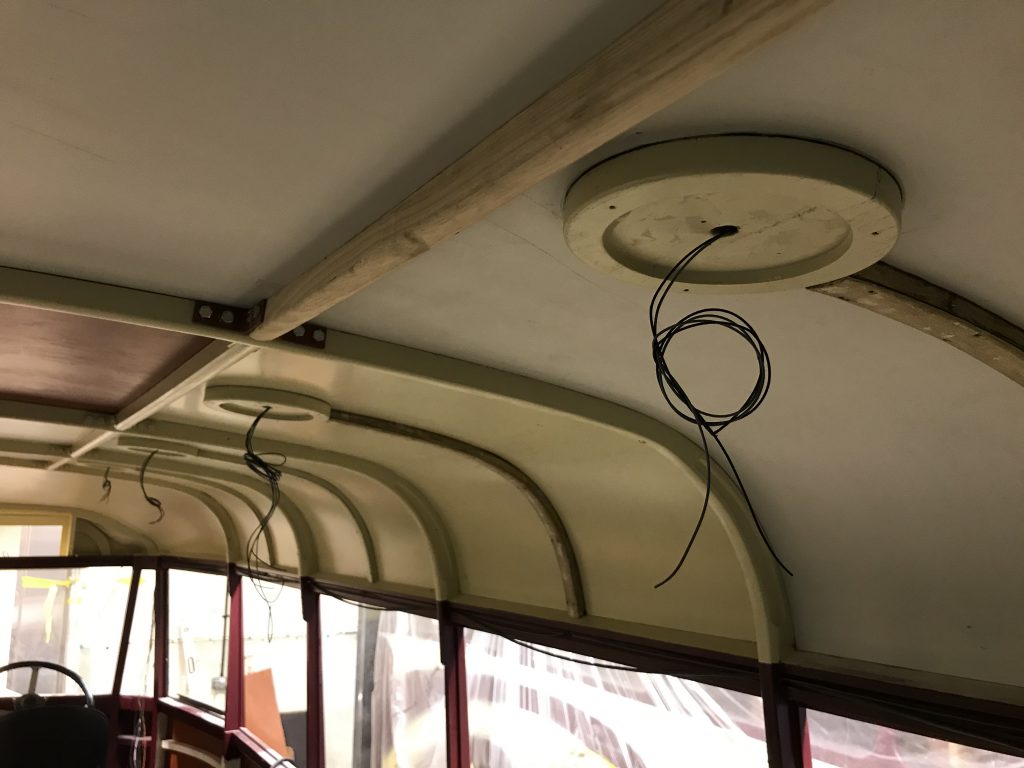
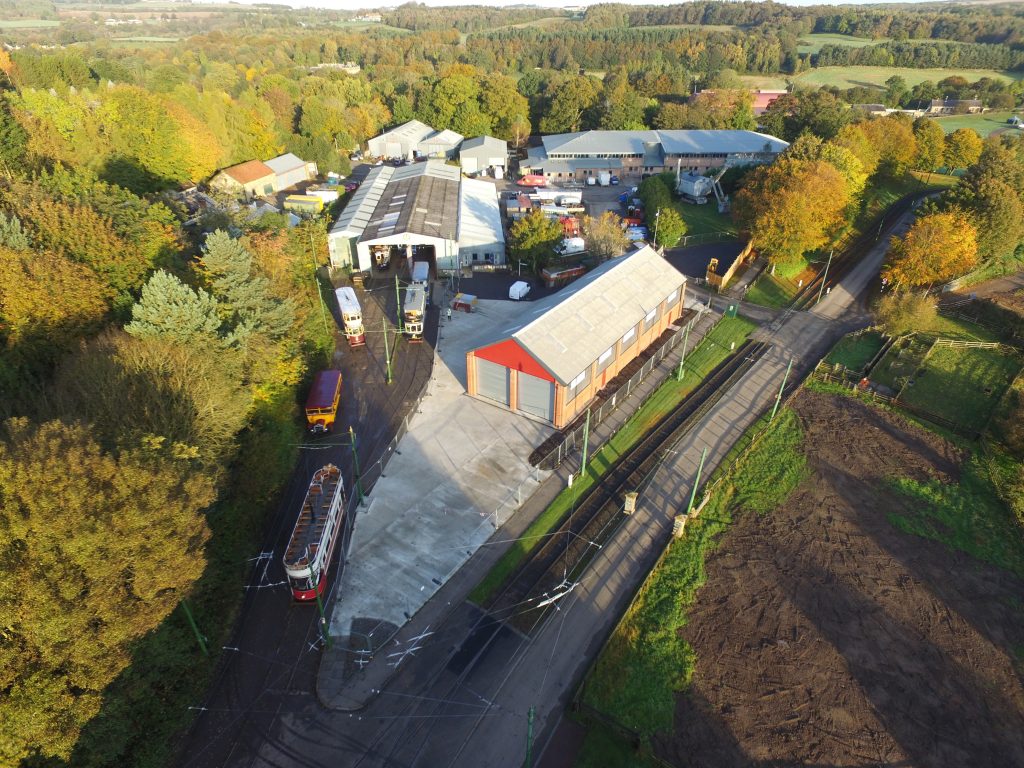
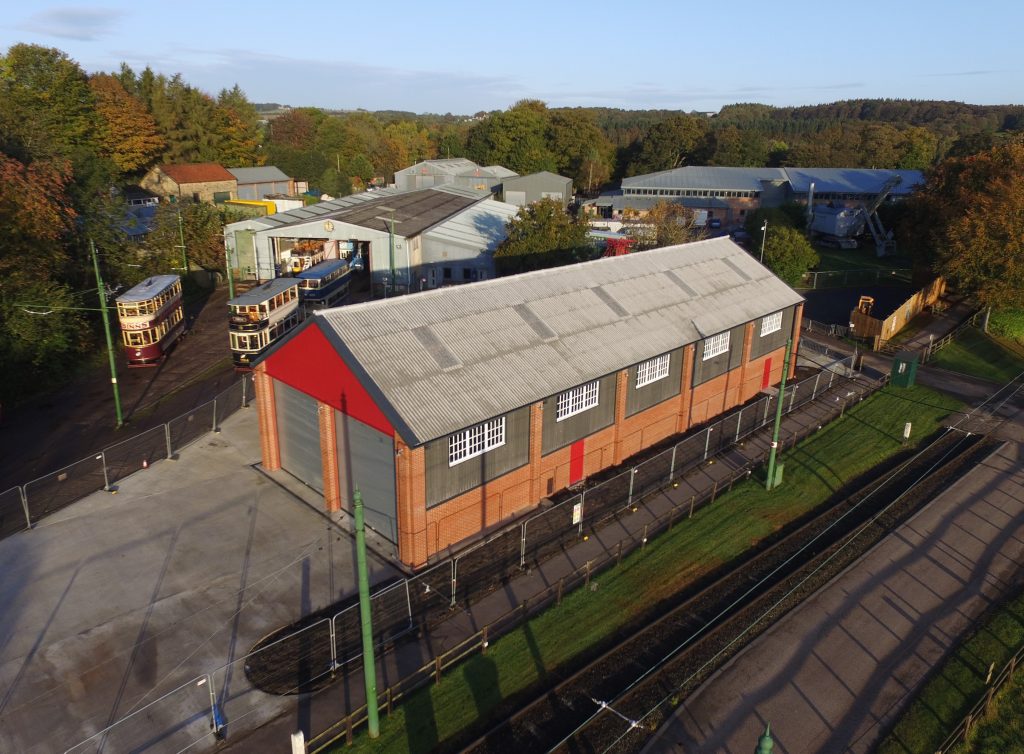
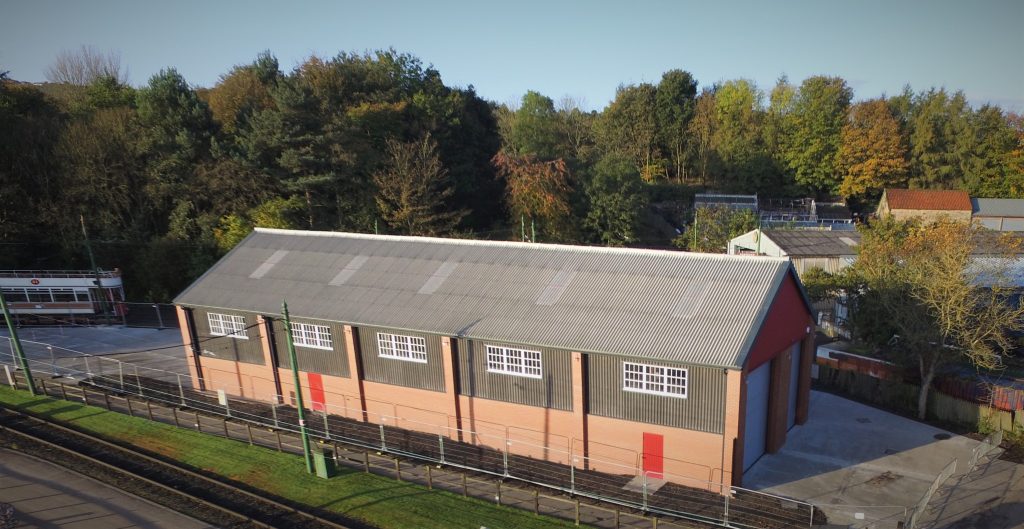

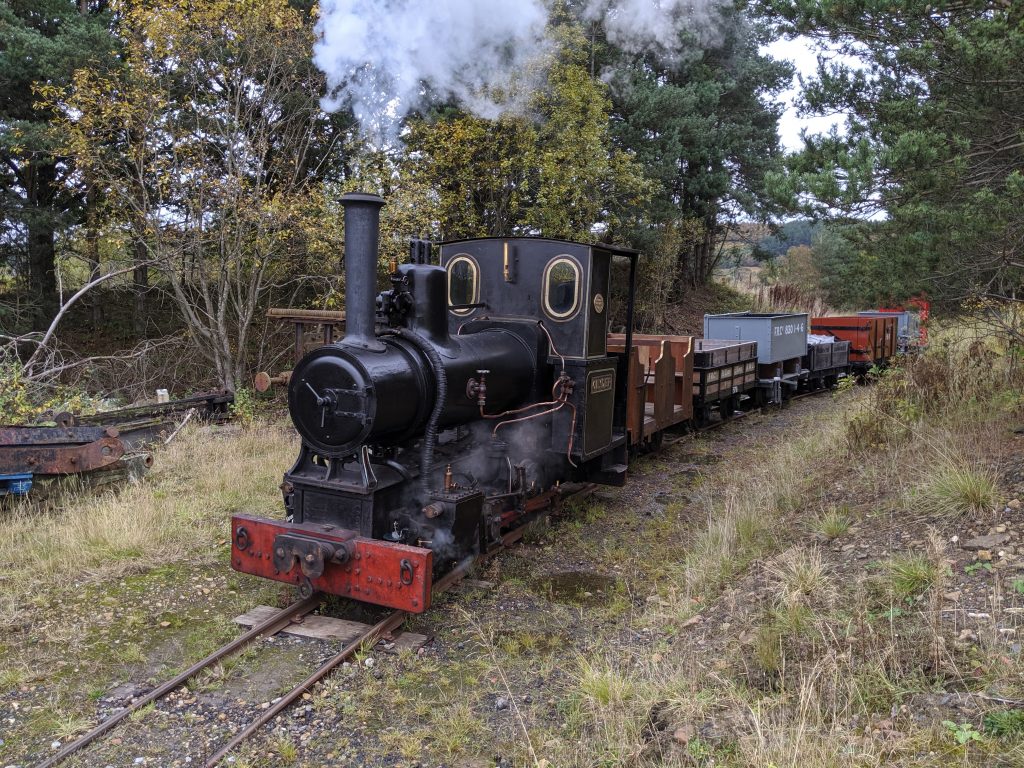
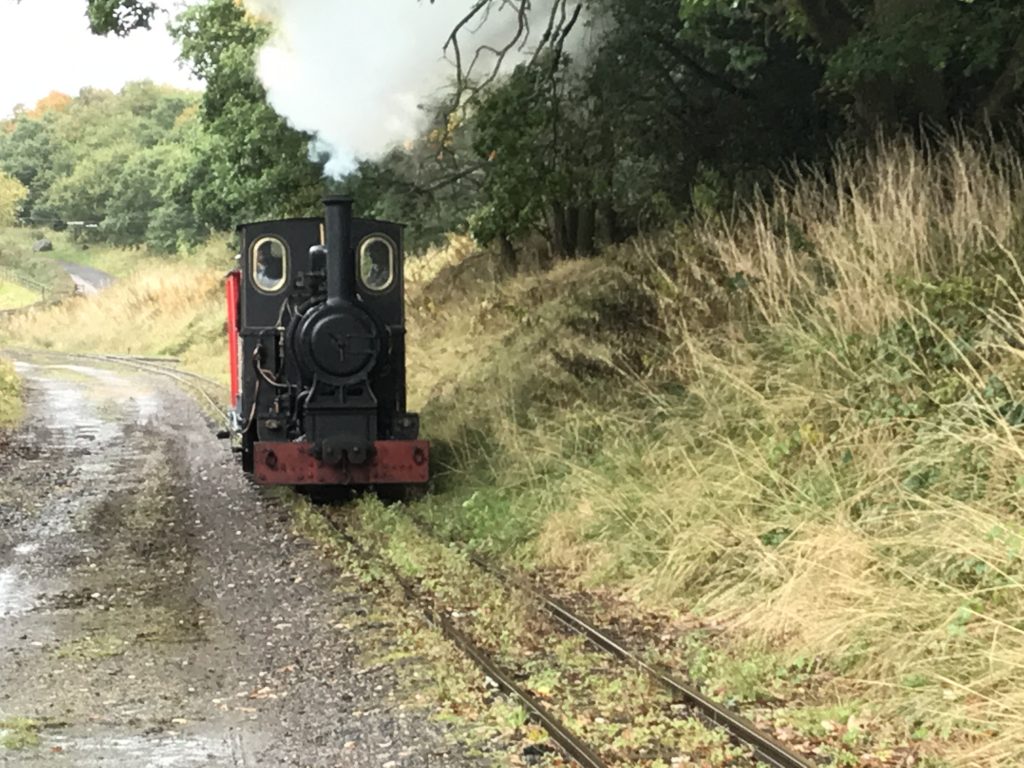
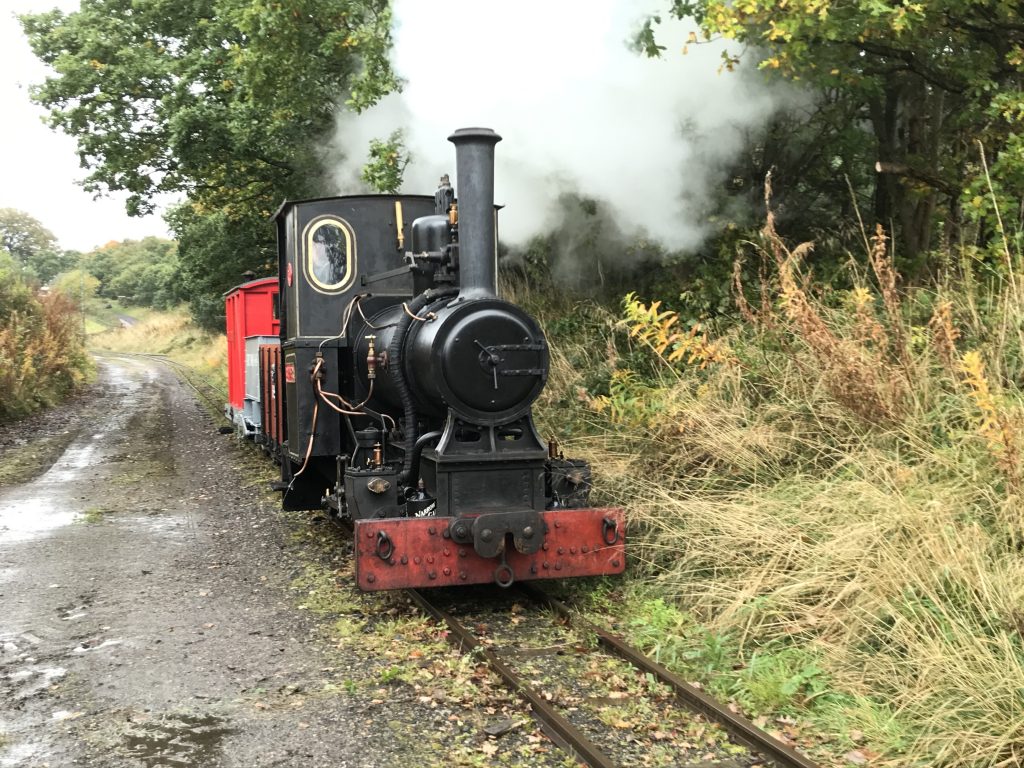
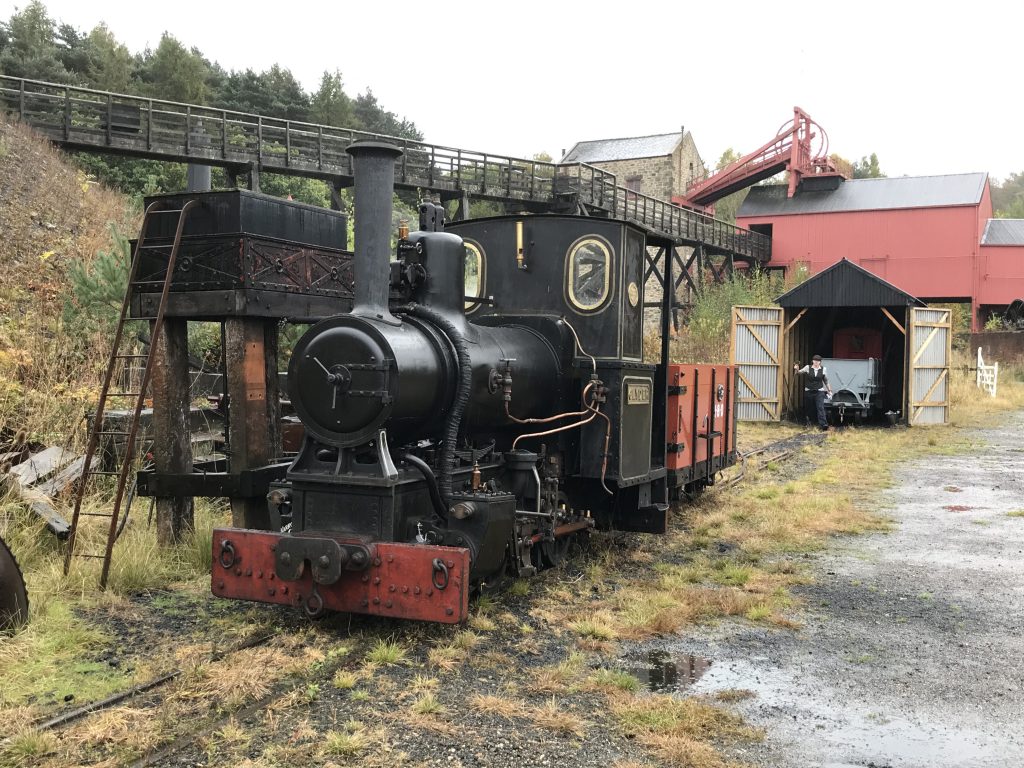
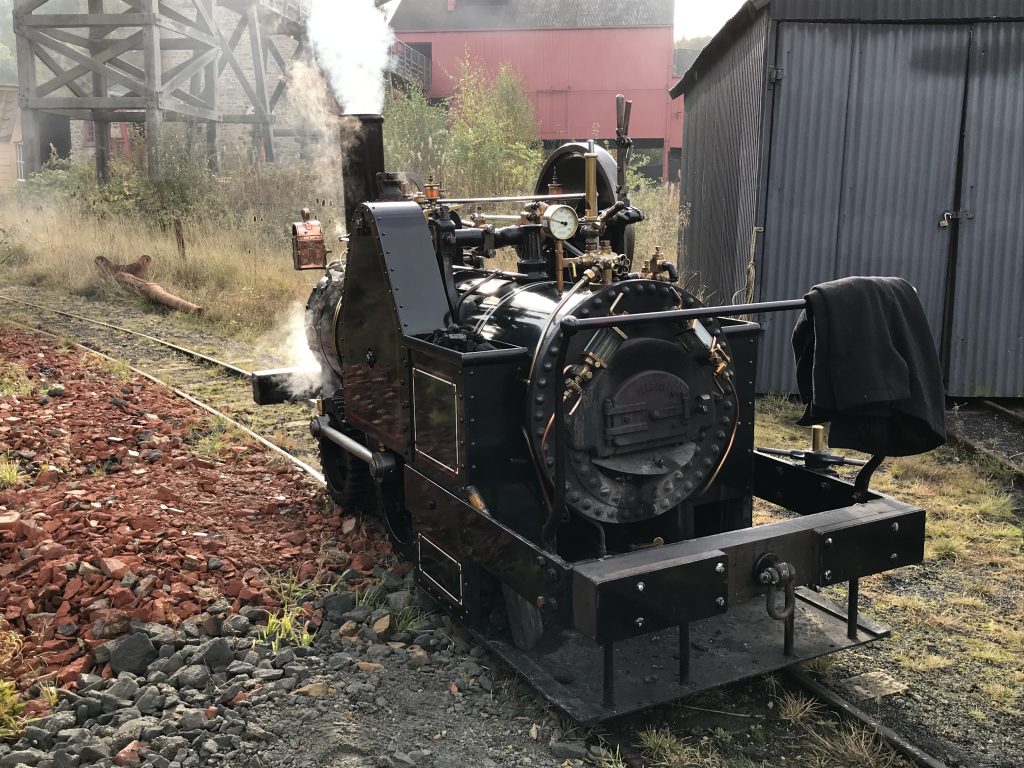
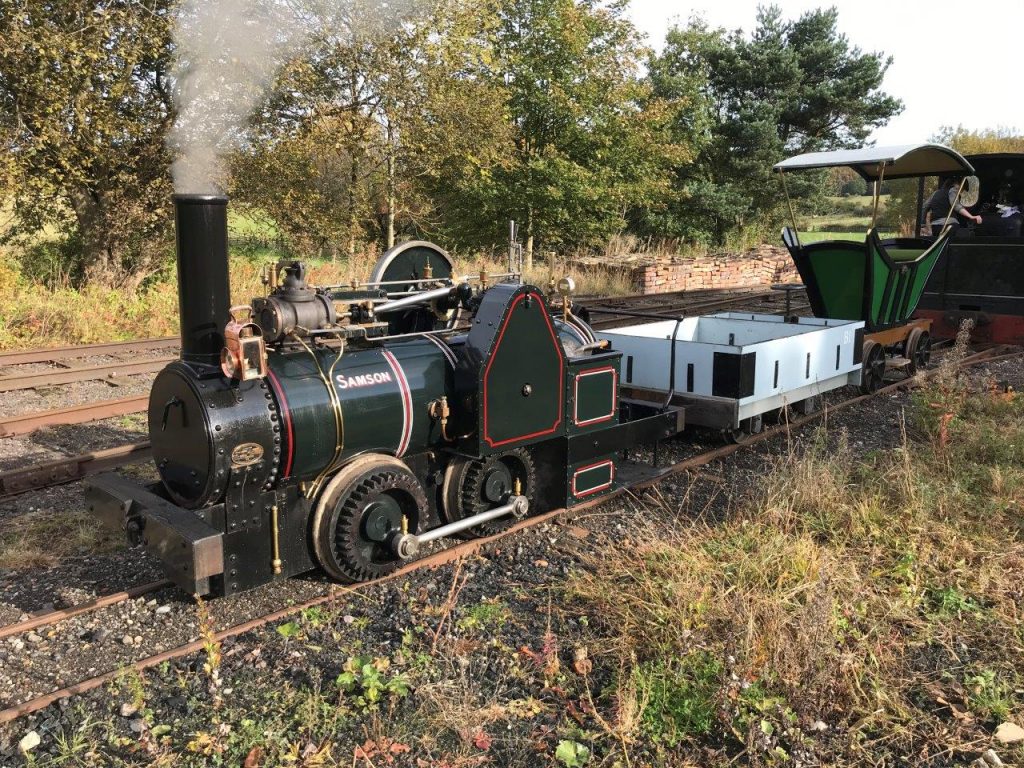
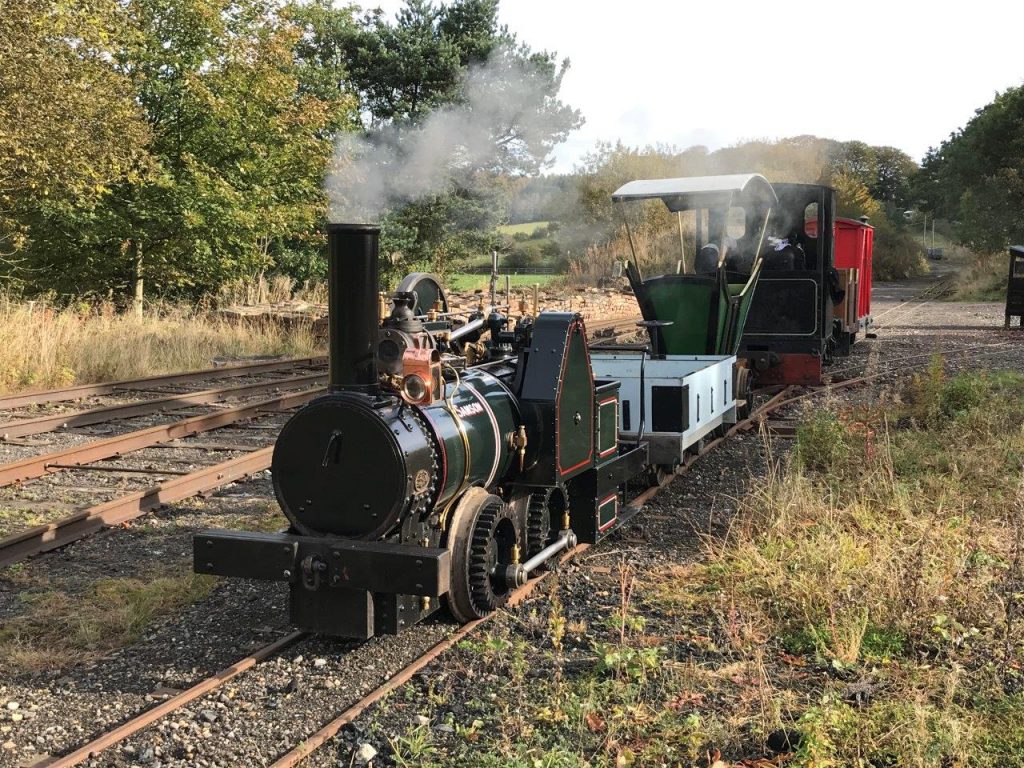
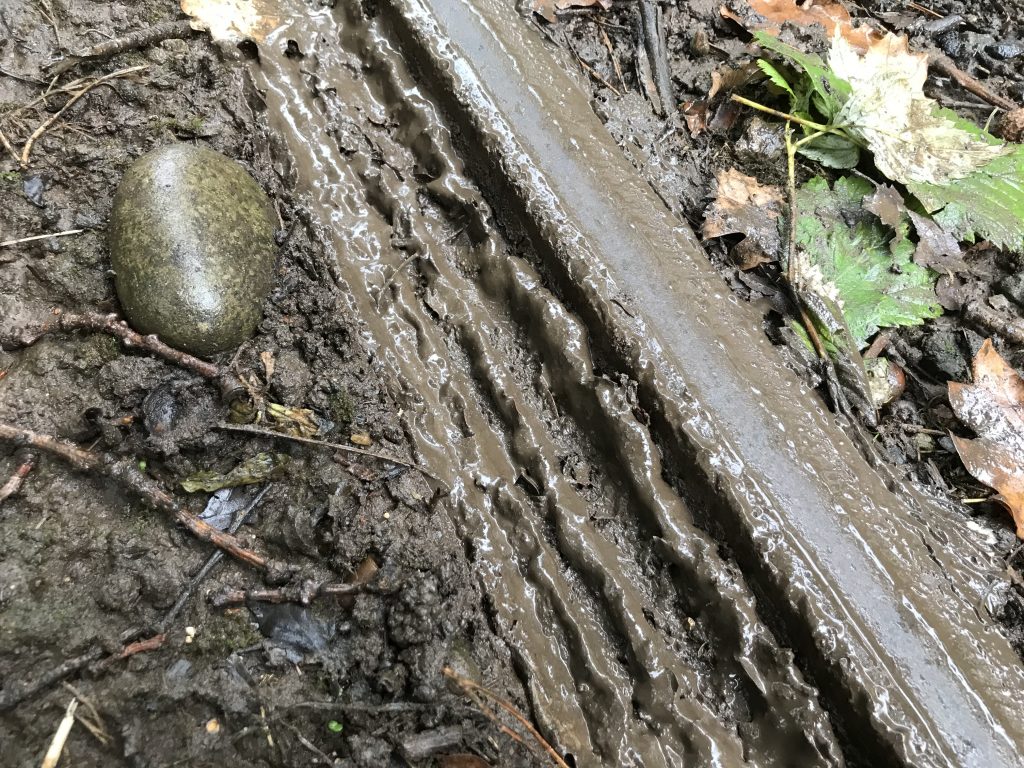
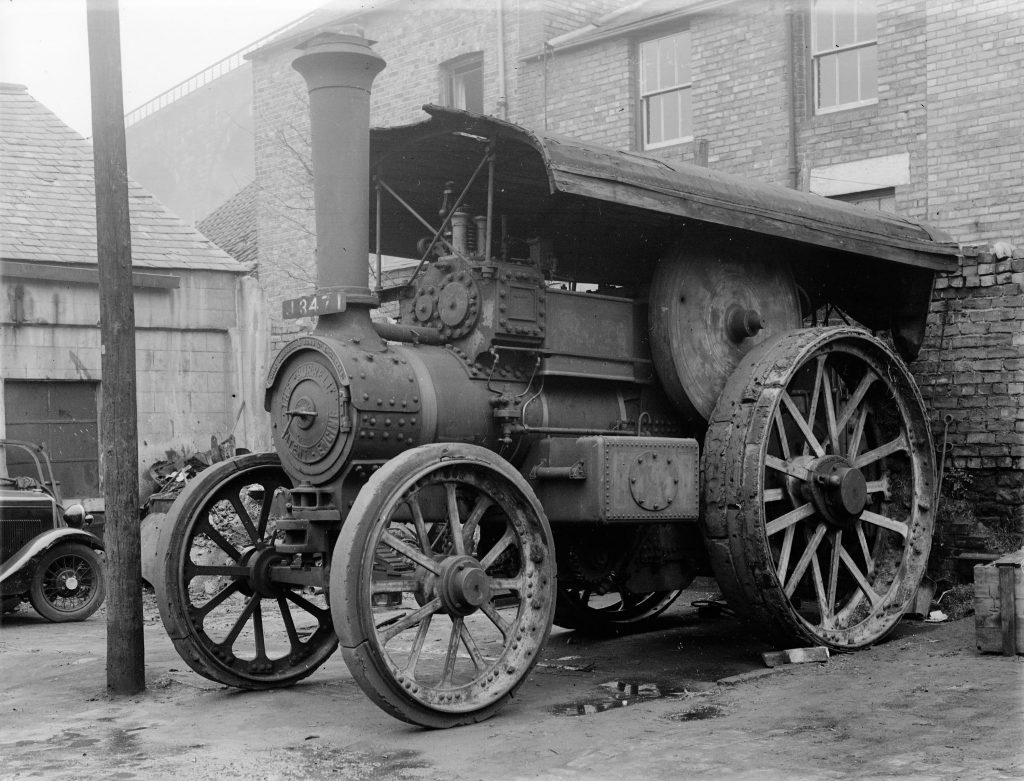
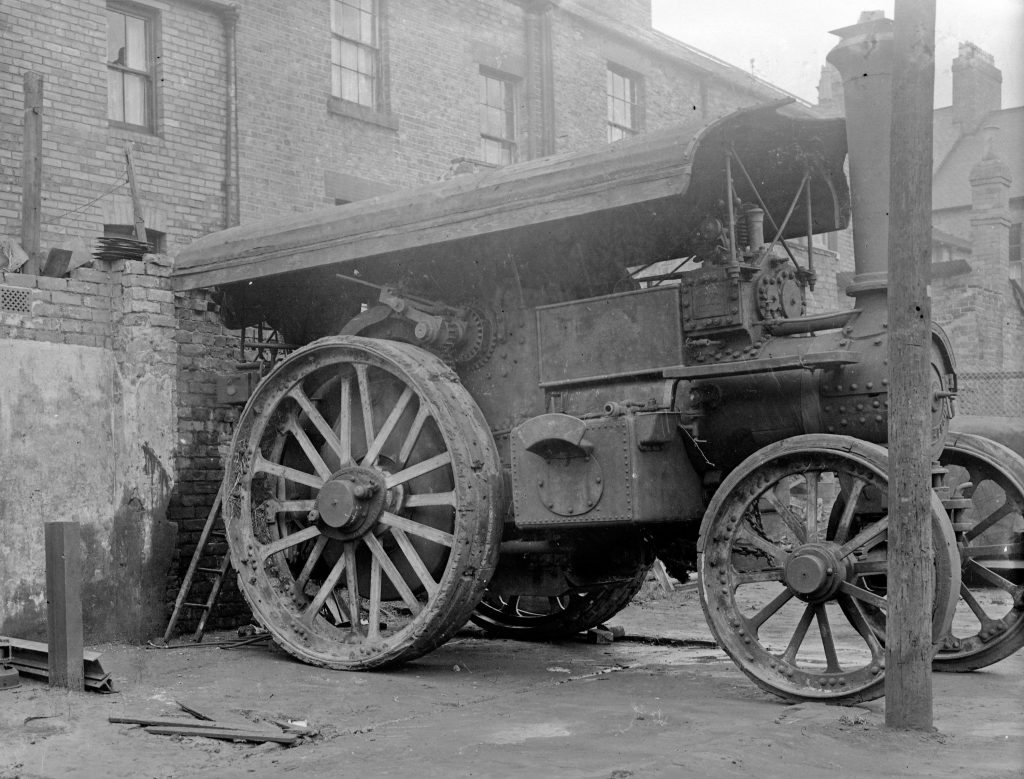





are you still planning to extend the colliery standard gauge line to the tramstop? as I think you planned to extend it all the way down the cutting cheers rob
Hi Rob. No plans at present to extend the standard gauge track, though it remains an option. We have a lot of renewals work over the coming years, and if this yields sufficient material we will consider it, however for now it will remain as a vehicle access route for the treatment plant and loading/unloading railway equipment. Best wishes, Paul
Hi Paul, an excellent report on the restoration of the Leyland Cub, but one slight correction is required, if I may suggest? Please note that the spelling of “Crosville” only contains one ‘s’. The name was derived from the name of the company founder George Crosland Taylor amalgamated with that of a French car designer Georges Ville from whom Taylor had bought some parts and plans to start a car manufacturing venture in Chester using the name “Crosville” as the make. To bolster the coffers of the stuggling car making activity a bus operation wss later started and from little acorns…….
Thanks Rob – I’ve made this mistake a few times but the new WordPress format won’t allow me to correct old posts – rest assured I will ensure it is corrected in the future! Best wishes, Paul
Hi good to see a number of improvements on the pit village narrow gauge railway how ever one job that seems to be on the back burner is the loco shed do you know when this depot will be complete? good to see that the bus depot will soon be in use!!
Hi Gary. The depot you’re referring to is, I think, the replica of Chadwick Nick that is intended for Samson in due course. Work started based on the primitive drawings that I prepared and utilising a window of opportunity for both staff labour and material. Those staff were between projects and will be fully engaged for a number of years to come on the Remaking Beamish programme. They are currently completing Spainsfield Farm. The materials I hoped to use have also been used elsewhere and as this was always an ‘as and when’ project, I cannot claim any priority nor allocate any financial budget to the work. It will be picked off over time to create a new exhibit whenever the opportunity arises. I’d be glad to hear of anyone wanting to sponsor the building. Which at a commercial rate would be somewhere upwards of £30k… so you can see why it must progress when opportunity allows rather than be a core project.
I hope this explains why it hasn’t progressed quickly. In fact the whole narrow gauge has only developed through favour and generosity. It has never been a core project therefore it has never had its own budget with which to develop.
Best wishes
Paul
May I suggest painting etc. the top pf the rear door of the Cub to look like a large rear destination blind display which would “explain” the shape visually.
Hi Alan. The doors will be the same crimson lake as the rest of the body so that they blend in with the overall livery. There is WAV (Wheelchair Accessible Vehicle) lettering to add and also the registration number, so the letter may appear on the upper section of one door with the lettering on the lower half. Will see how it all looks when finished before deciding exactly on any embellishments though. Destination blinds can be tricky – is not generic they can confuse visitors. Whilst if too generic they don’t convey the right information. Not been a problem on the trams but it has been on the buses in the past. I’d rather just make the doors blend in as whilst they are not ideal, they are necessary and I doubt the people who have need of this bus will complain J 2007 has never attracted adverse comment in this regard and it is a brutal looking thing!
Best wishes
Paul
Your have a problem rotating images in WordPress so why not rotate them before inputting into WordPress.
Hi Gordon – yes, I’ve tried this. The images revert to their original format when uploaded unfortunately. Best wishes, Paul
Hi Paul,
Thanks for your blog back on the loco shed narrow gauge (pit village) at least I now know why very little has been done in the past 2 years (or so)lets hope when the means to carry out more work on it that it happens and the visiting public don’t have to wait years to see it complete.
Hi Gary – I can assure you that when the opportunity to complete the building arises, I will seize it. However, it could be some years as there are obviously many other pressing priorities for the Museum and this was always about incrementally developing the area when opportunities arose, and obviously we have the vast and extensive Remaking Beamish programme (which will vastly enhance the visitor experience) underway at this time too! However, I am keen to see the shed built and will progress this whenever an opportunity enables it to do so…
Best wishes
Paul